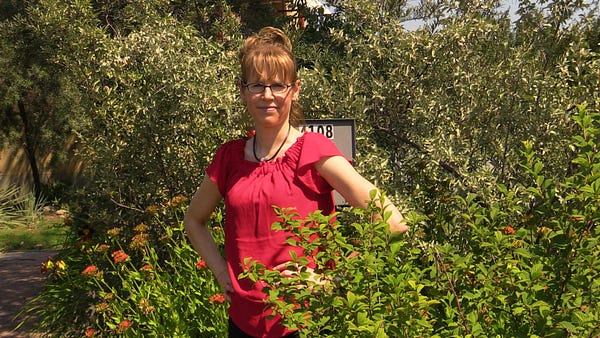Sound familiar?
Your WHY is the purpose, cause, or belief that inspires you.
People don’t buy what you do, they buy why you do it. –Simon Sinek
You’ve heard the advice for knowing your WHY.
Yet, telling others WHAT you do is easier.
So is marketing WHAT you do. Perhaps a group, event, book, course, program or app.
What’s the big deal about starting with WHY?!
You know those people you envy with marketing on auto-pilot. They have customers or clients who regularly purchase again and again, rely on word of mouth marketing, and have an endless stream of referrals.
They inspire people to take action, to purchase, to refer, and to inspire others to do the same.
When we communicate WHAT we do first, it doesn’t drive behavior. When we communicate from our WHY, we’re talking directly to the part of the brain that controls decision-making. Our language part of the brain allows us to rationalize those decisions. –Simon Sinek
Perhaps you’ve told people your WHY. It didn’t move them to take action or inspire them to purchase or refer.
Could you have the wrong WHY and not realize?
If unsure, I can relate.

An emotional breakdown lead to an emotional breakthrough.
I’d read Simon Sinek’s book, Start with Why, taken the follow-up course, heard his related talks, even helped others clarify their WHY.
Still, my WHY was vague.
A meaningless statement that didn’t bring up positive emotions.
It wasn’t life-changing.
It didn’t motivate me through business challenges and struggles.
It didn’t inspire others because of shared beliefs.
My influential mentor shared his eerie premonition.
“You’ll have an emotional breakdown! Then you’ll know.”
I’ve always been ultra-sensitive to receiving critical feedback. Even witnessing criticism given without compassion.
At a time when my self-esteem was at an ultimate low, receiving critical feedback triggered a breakdown.
Emotional chaos blocked access to my logical, rational brain areas. Thoughts that came to mind had strong emotional feelings.
In response to, “You’re pushing a boulder up a hill!” came,
“I’ll push the boulder up the mountain, BACKWARDS!!”
Reflecting how I felt about my WHY, then and now.
As soon as I stopped reacting, I started writing.
Highlighting which key themes and ideas stood out.
Comparing notes from working through the Start with Why premier course. Searching through written memories of stories, vividly recalled from my youth. Reading my partner’s story observations.
I came up with a new WHY statement that matched how I felt about my vision. Since then, revisions have been minor.
How do you know if your WHY matches your genuine WHY?
Consider what my self-analysis revealed.
5 Lessons from Discovering my Real WHY
Plus, insights for finding your true WHY.

a. Rushing the WHY Discovery Process
To save time, I summarized instead of telling my stories. Although my partner took notes, she couldn’t help with identifying key themes and ideas.
My WHY statement was vague. It didn’t bring up positive emotions.
Insights
· It takes motivation to carefully go through the entire WHY discovery process. Having a strong desire helps. It’s powerful enough when focusing on it overcomes obstacles and inner struggles for completing the process.
· Scheduling the recommended periods of time prevents rushing the process.Helpful to divide into sections. Log progress after completing each section to provide internal reinforcement.
· Having an accountability partner provides mutual support.
b. Not Working with an Ideal Partner
I chose a close peer who’s an emotional rock and good at listening. Asking for a few hours of my partner’s time wasn’t easy. Neither was sharing emotional stories and opening up about my past.
Insights
· Offering to trade conversation time reduces guilt for requesting a few hours of time.
· Roles could be switched with a partner who also wants to find their why.
· The staff at a seniors’ residence, unemployment center or agency for aspiring actors may know people who’d appreciate partnering. Offer a benefit. Listening to their stories or auditions, or practicing interview questions with.
· Video calls could replace in person meetings.
c. Wasting Time
I became lost in memories of past stories. Taking too long to go through the story exercises. Going off-topic.
Insights
· Adding a story template prevents getting lost or stuck recalling stories.
· It’s faster to video-record than write stories.
· Going forwards into the future brings up a few key themes to search past stories for.
Questions to come up with themes to hunt for.
· What do YOU believe is wrong with our world that you can change?
· Why are YOU passionate about helping the people you target better than any other person or company?
· If it’s not about money or the number of people you impact –why are you driven to keep doing what you do –no matter what challenges come up?
· What belief will get you through your darkest business moments?
· Imagine your death bed message. What was your life’s purpose?
During which childhood or adolescent experience do you recall discovering answers to these questions?
d. Experiencing an Emotional Breakdown
An emotional breakdown lead to clarifying my WHY. The emotional pain I experienced was dangerous. Without effective resources, I could have hurt myself and others in that state.
Insights
· Safer to find your WHY when you feel emotionally stable and your mind is calm. Not overly upset, depressed, stressed, worried, excited, etc.
· While conversing with a partner about stories from your youth, key themes and ideas play over and over in your mind. These stand out as emotions awaken.
e) Relying on Thinking
After completing the premier Start with Why course and template, the WHY statement I came up with wasn’t inspiring. It didn’t express how I feel about my vision /purpose/cause. It didn’t get weaved into everything I do or how I do it.
Insights
Our WHY is stored in our limbic brain area. This area is separate from our logical, rational region, which activates when thinking occurs.
Thus, finding our WHY doesn’t come from thinking about why we’re in business. It’s accessed where emotions are housed.
The limbic brain is responsible for all of our feelings, such as trust and loyalty. It’s also responsible for all human behavior and decision making, but it has no capacity for language.
It is this disconnection that makes putting our feelings into words so difficult. –Simon Sinek

Finding your genuine WHY changes your life –your business –yourself.
It impacts everything you do. How you do it. Who you attract.
Knowing your WHY influences your decisions –goals –plans –schedule.
Realizing WHY you do what you do is a source of inspiration during your DARKEST moments in business.
Revealing your WHY alters how others view your obsession with fulfilling a passion, they’ll never rationalize.
Once you discover your true WHY –you’ll understand why you fight for what you believe in.
Pushing the boulder up the mountain, BACKWARDS!



